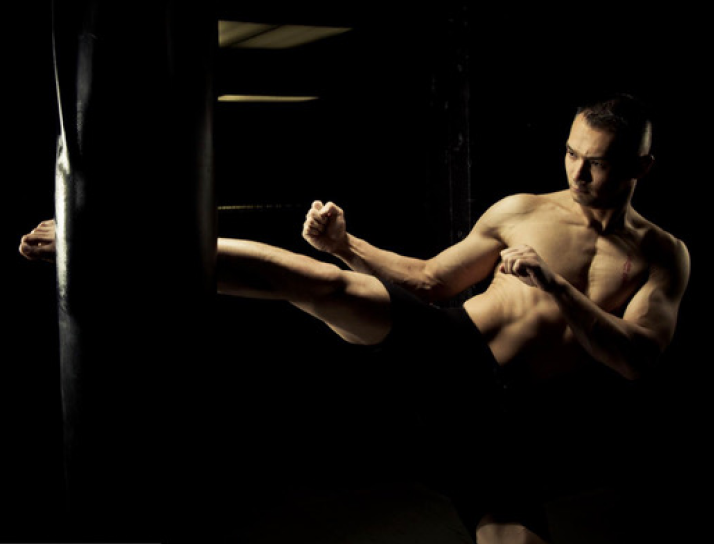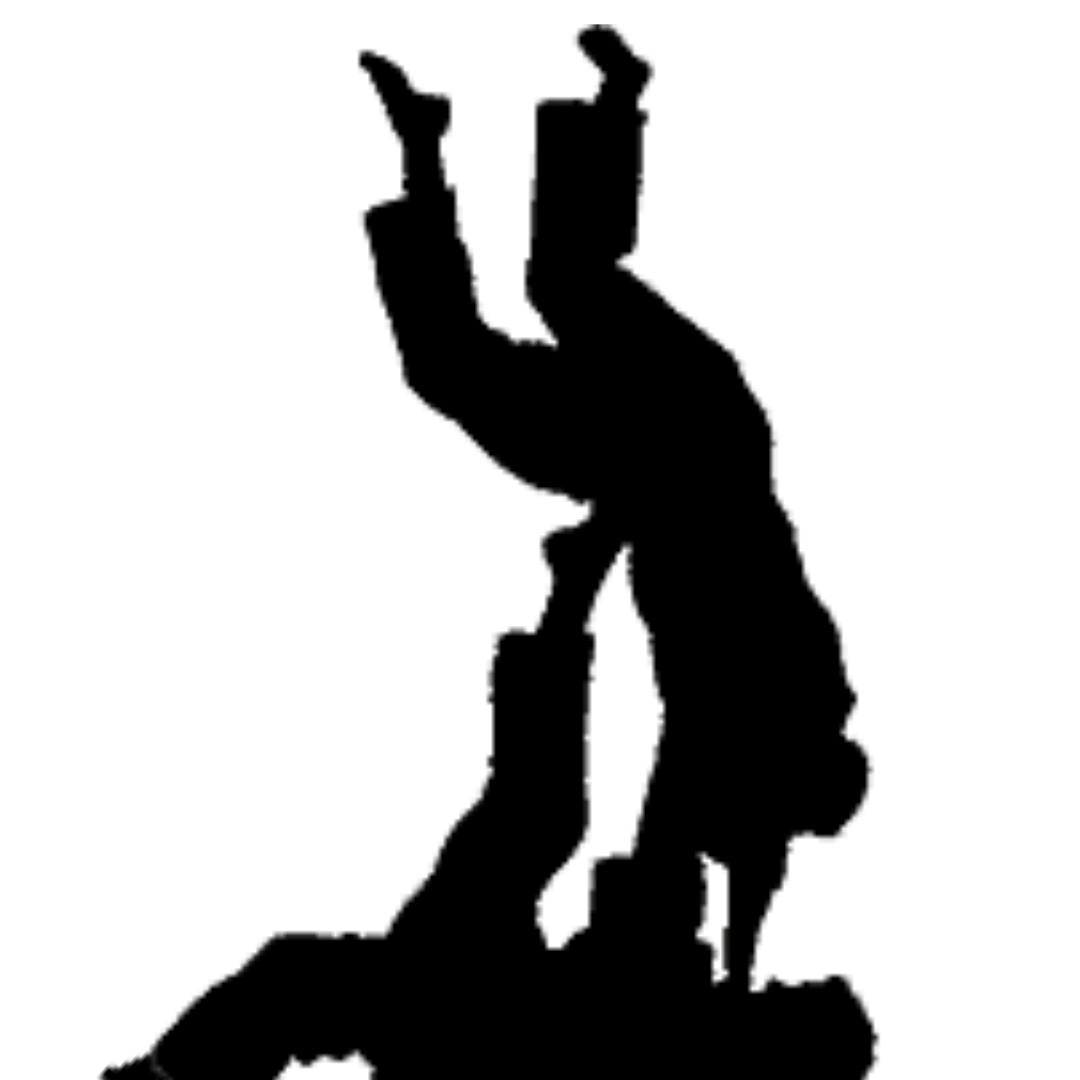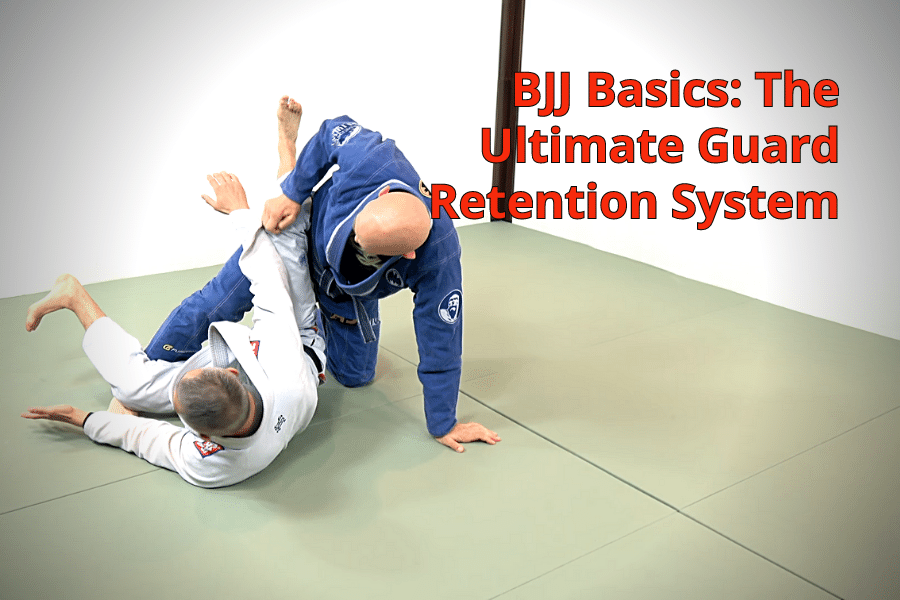
Table of Contents
- BJJ Basics
- BJJ Basics Guard Retention System: Understanding The Guard
- BJJ Basics Guard Retention System: Fundamentals Of Guard Passing
- BJJ Basics Guard Retention
- BJJ Basics Guard Retention Grand Unified Theory
- BJJ Basics Guard Retention System: Guard Retention VS Guard Attacks
- Summary Of The BJJ Basics Guard Retention System
This is my BJJ Basics Guard Retention System!
Clearly, having a strong Guard that is difficult to pass and that regularly and predictably delivers sweeps and submissions is the cornerstone of Brazilian Jiu Jitsu.
Keep in mind that although this system will help anyone of any level, my Ultimate Guard Retention formula was written for the complete newbie in mind.
Unquestionably, the BJJ Basics Guard Retention System will help you get good at Jiu Jitsu in the shortest time possible.
BJJ Basics
First off..let’s start with some fundamentals.
Brazilian Jiu Jitsu is fundamentally just stick fighting. And, in addition, human beings are just 5 sticks duct taped together 😊
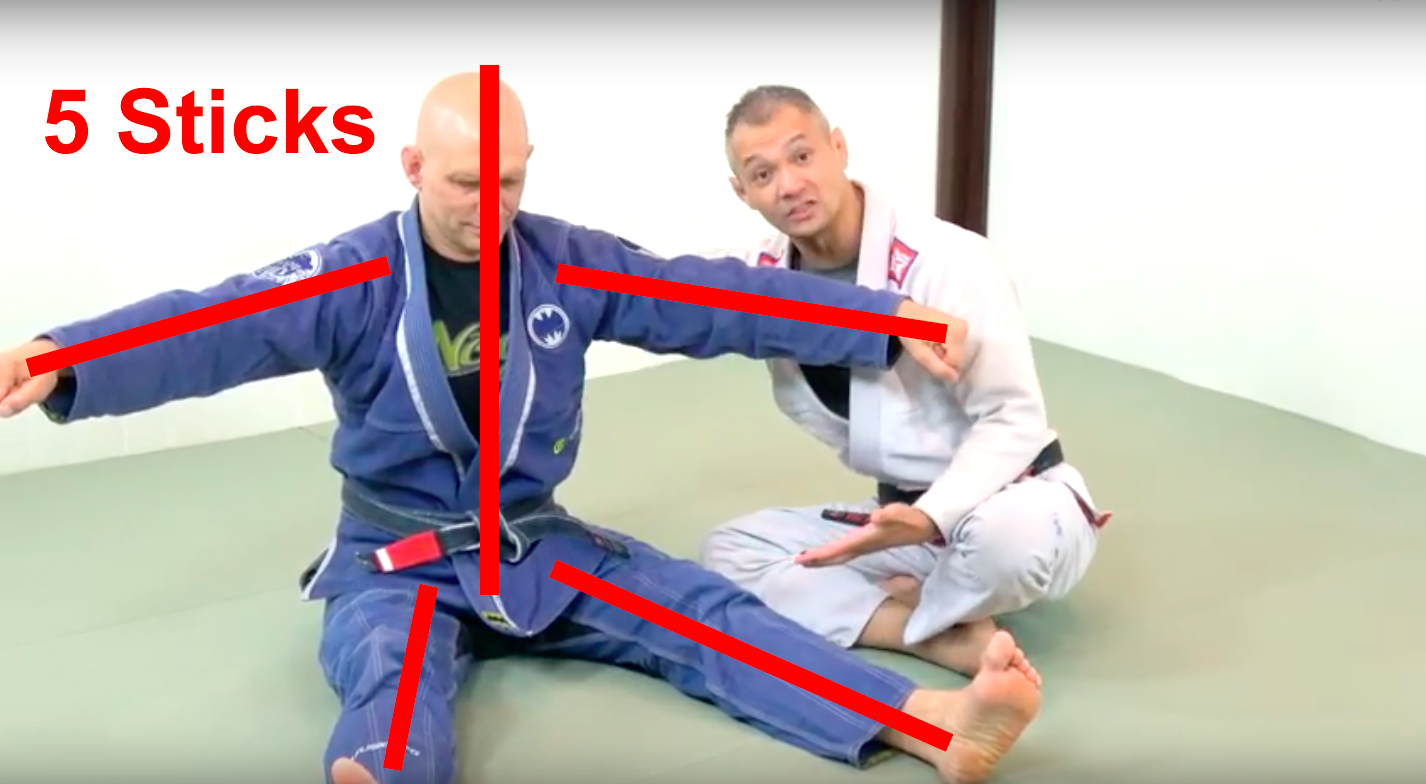
And sticks can be two things:
- Frames
- Levers
Frames stop motion.
Levers amplify motion.
So how do frames and levers relate to when we’re rolling and doing Jiu Jitsu?
Above all, when we’re rolling and doing doing Jiu Jitsu:
I always want to be a set of FRAMES.
and I always want YOU to be a set of LEVERS.
In Jiu Jitsu, I’m always hunting for levers so I can control my partner…
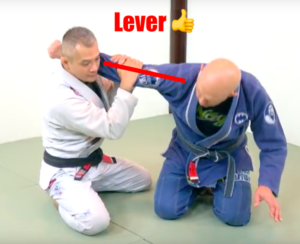
And eventually submit them.
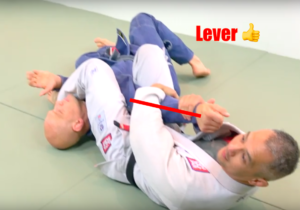
For now, let’s set aside the concept of levers. We’ll take a look at levers again at the the end of this article.
At this time, we need to focus on frames.
Along with how frames are the most critical element in having a strong impassable Guard.
BJJ Basics Guard Retention System: Understanding The Guard
Guard is basically a wall.
And clearly, walls are built to provide protection. Without a doubt, walls are built to protect you from people just walking into your house and helping themselves to your fridge. Similarly, it’s the same thing in Jiu Jitsu. Meaning, that Guard is just a big fat wall that keeps your opponent away from your head, neck and torso.
And what do all walls need? All walls need support.
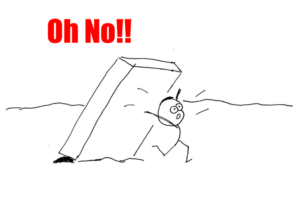
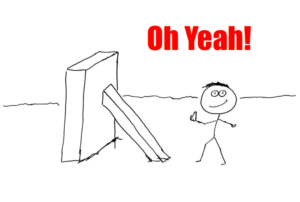
All walls need to be supported by a frame.
GUARD = WALL = FRAME
Thus, your Guard is simply a wall that’s supported by a frame.
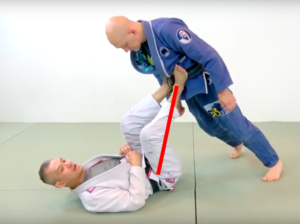
Your Guard needs to guard you against your partner’s weight. Obviously, that’s why it’s called a GUARD!!
And thus, that’s why you always need a frame (a stick) to constantly support your partner’s weight. And to stop them from attacking you.
No Frame. No Guard.
EVERY GUARD NEEDS TO HAVE A FRAME!
It’s a common misconception that as long as I have my legs controlling my partner – I’m safe!
No! 🚫
Without a doubt, this is incredibly wrong.
No frame means no Guard. And thus, no sense of safety.
It should be noted that when you’re on bottom, you’re main priority is to stay safe. Above all, you constantly need to keep your wall up and point a frame towards your partner.
At this time, let’s look at some examples to illustrate my point.
Half Guard
Absolutely, for Half Guard, you NEED to frame with your shoulder or else you’re gonna get smashed!
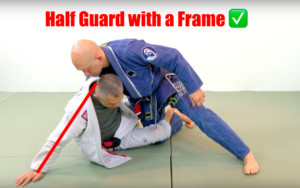
Despite keeping your partner in Half Guard, if you don’t have the proper frames in place your partner can grab your neck and smash you.
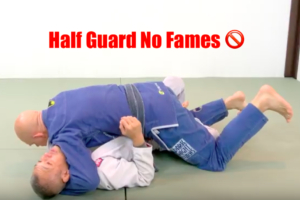
Closed Guard
Most importantly, your Closed Guard needs to stop your partner from getting too close to you. That’s why I recommend a High Closed Guard when I’m fighting from Closed Guard. This is where I’ve got a knee over my partner’s shoulder.
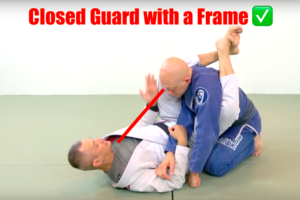
Consequently, you’ll be open to attacks by your partner if you’re not maintaining the proper frames from your Closed Guard. Your Closed Guard needs to have a frame otherwise you can still get Ezekiel Choked!
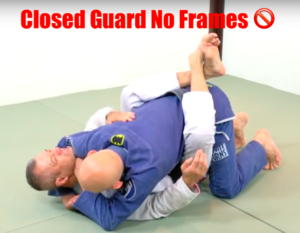
Butterfly Guard
In addition, your Butterfly Guard is only effective if you’re sitting up with a strong frame.
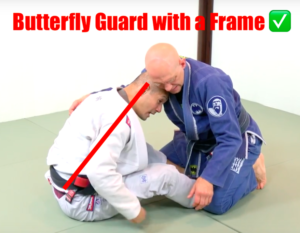
On the other hand, if you’re not sitting up in your Butterfly Guard with your spine as a strong frame, then you’ll be open to your partner driving into you.
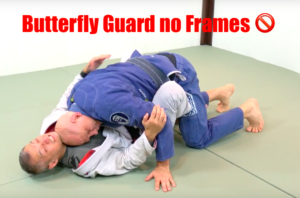
In Conclusion…
Most importantly, in BJJ, the basic Guard is one with a frame. So, for your Guard to be effective and functional, your Guard always needs to have a frame.
So, now we need to..
ALWAYS KEEP THE WALL POINTED AT OUR OPPONENT!
In an Open Guard scenario, you can see that it’s easy for our partner to just run around our Frame.
Thus, for our Guards to be functional, all of our frames need two things:
- Hooks to stop your partner from just running around your wall
- Hands. I need to stop my partner from grabbing the wall and moving it.
The examples below help illustrate what I mean.
Hooks– To stop your opponent from just running around your wall.
It should be noted that when I have an Open Guard, not only do I need a frame on my partner’s hip so to keep them away from me, I also need a hook on their knee so they just don’t run around me.
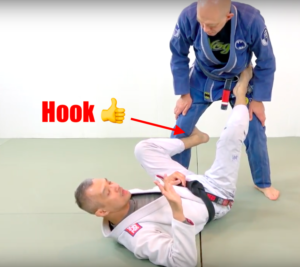
Additionally, if my partner is kneeling, I still need a hook to stop my partner from moving around my frame. I’m fighting from Half Guard in the image below. My left leg is the frame and I’m using my right leg as the hook so my partner on top doesn’t circle around to my neck.
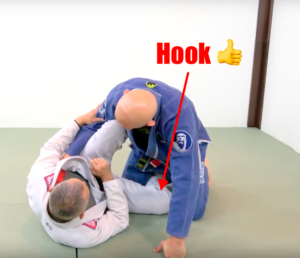
Hands– You need to use your hands to stop your opponent from just removing your frames
In the video below, notice how I’m always stripping my partner’s hands off of my feet.
Watch 👀 this video 📺 below ⬇️
I explain my definition of Guard with more vivid examples
BJJ Basics Guard Retention System: Fundamentals Of Guard Passing
If Guard is just a wall; then, Guard Passing is just getting to the other side of the wall.
Simply put, there’s only 4 ways to get to the other side of a wall.
- Around
- Under
- Over
- Through
Thus, there’s ONLY 4 types of Guard Passes:
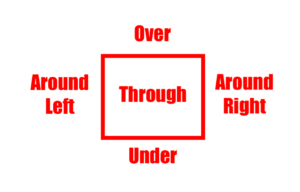
1) I can go AROUND to the right side or the left side of the wall.
Toreando Pass. Matador Pass.
2) I can go UNDER the wall.
Double Under Pass. Leg Drag Pass.
3) I can go THROUGH the wall.
Knee Cut Pass.
4) I can go OVER the wall.
Over/Under Pass. Smash Pass.
BJJ Basics Guard Retention
Now let’s talk about how to defeat each of these types of Guard Passing.
If Guard Passing is essentially getting to the other side of the wall.
Then, that means Guard Retention is simply reestablishing the wall.
When we know that Guard Retention is just rebuilding a wall that was removed by our partner; then, the 4 different Guard Passes become easier to defeat.
Let’s look at some examples.
If your partner is going around the wall with a Matador Pass, your partner has grabbed your leg, moved the wall and then transitioned to Cross Side or Knee Mount.
Remember, your Guard is a wall and all walls have frames. In Jiu Jitsu, your partner’s primary objective is to turn your frames into levers for their control.

Once your partner grabs on to your foot, they can now turn your frame into a lever and then pass your Guard.
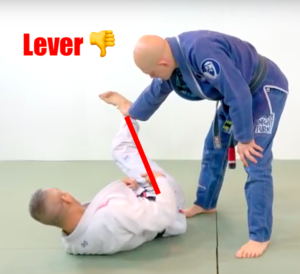
To defeat this Guard Pass, you need to reestablish your frame. And thus, rebuild your wall 😃 👍
With every Guard Pass, your partner has either turned your frame into a lever. Or, they’ve just removed your frame.
Before we go further, let’s look at another example.
When my partner is doing the Double Under Pass and going under the wall, they’re turning my spine into a lever.
Notice how I’m stacked up high on my shoulders with my spine almost vertical. This is very dangerous and I always need to avoid this scenario.
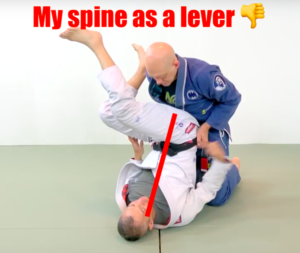
To prevent getting folding in half..
You need to make sure that your spine doesn’t turn into a lever. As your partner tries to pick your hips up, you need to walk on your shoulders.
Another example of when my frame is removed is the Knee Cut Pass. You need to have something blocking and stopping your partner from driving forward. The Knee Cut Guard Pass works when all of your frames have been displaced. And there’s nothing stopping your partner from driving forward.
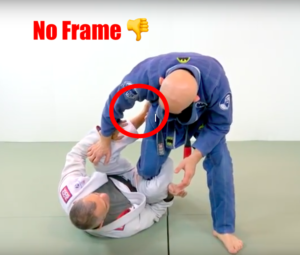
As soon as your partner removes your foot from their hip, you need to replace it. This can be tough and you may need to use your hands to push but it’s essential for you to reestablish your frame and get your foot back anywhere on your partner’s body.
Watch 👀 the video 📺 below ⬇️
In the video below, I break down my basic perspective on BJJ Guard Passing.
Guard Passing can seem endless; but, really, there’s only 4 ways to pass the Guard. And when we look at the solutions for defeating these Guard Passes, really, it just comes down to some simple rules.
Definitely, never let your partner grab the end of your frame and turn it into a lever. It should be noted that you need to use your hands to keep your frames safe.
Without a doubt, letting your partner just run around your wall is too dangerous. And thus, you need to hook his leg with your leg
In addition to this, you can never let your partner anywhere near your head or neck
BJJ Basics Guard Retention Grand Unified Theory
Guard Passing and Guard Retention can seem shocking complex. And it truly is.
However, there’s some fundamental concepts that all Guard Passes are based on. And thus, there’s key fundamentals that all Guard Retention techniques are based on.
Previously, we simplified Guard Passing. Plus, we simplified Guard Retention. Finally, let’s put everything together.
So here’s my GRAND UNIFIED THEORY ON GUARD RETENTION.
My GUT on Guard Retention is build on 3 pillars:
- Head
- Hands
- Heels
Whether it’s Butterfly Guard, Dela Riva Guard or Closed Guard, these 3 things need to be a part of the system or else you’re going to get your Guard passed.
Let’s quickly look at each of these things in greater detail.
Head.
You always need to protect your head. By “Head”, I mean your neck and your collar. You can not let your opponent grab your collar. You can’t let them drive their shoulder into your jaw. And you can not let them grab on to the back of your neck. Protecting your head is a key element to maintaining a strong offensive Guard. If your opponent is able to control your collar, smash into your neck or hinder you from moving your head in any way; then, this will be the beginning of the end of your Guard.
Hands.
Hands keep your frames safe. Plus, they keep your head and collar safe. As well, hands are used as hooks so that you can keep your frames pointed at your opponent. And finally, hands act like frames when your “Leg” Guard is passed and you need to use your “Arm” Guard to stop your opponent from smashing you.
Heels.
Heels refer to the frames that you use to maintain your Guard. Your Guard is a wall. Walls need frames. These frames are your shins, your feet and your knees. Frames constantly need two things in order to be effective.
- Hooks- to stop your opponent from just running around you
- Hands- to stop your opponent from just moving your frames.
Notice how I’m using my hands to dynamically protect my frames from my partner’s grips.
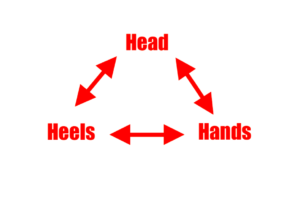
BJJ Is Like Spinning Plates
Consequently, the Guard Retention GUT of Head/Hands/Heels is kinda like spinning plates.
Sometimes, one plate needs all of your attention because it’s about to fall. You give the wobbling plate some attention but right away you’ve got to jump to another plate that’s wobbling.
Think of Head/Hands/Heels as a tripod where each of these elements make up a leg. If one leg is missing the entire tripod collapses. Each component is critically important. When your Guard gets passed, it is because one of these elements was not being maintained.
With this GUT, you can now self diagnose why and how your Guard got defeated and what you can do to fix it. So, with this simple three prong formula, you can be your own coach and solve any Guard Retention problems you come across.
What Should I Do First?
As a result, the main problem with the Guard Retention GUT is that you’ll have a hard time prioritizing how to use your hands.
Should I use my hands to grip strip the collar control?
Maybe I should use my hands to defend against the crossface?
Perhaps I need to use my hand to strip my opponent’s control of my pant leg?
Should I use my hand to hook my opponent’s heel so they don’t run around my frames?
The correct answer is..DO ALL OF IT!! Your hands will be moving the most when you are playing Guard Retention. Fast hands win fights!
Here’s the video I made that breaks down the Guard Retention GUT.
And now, here’s the shocking finale. Ultimately, this is so surprising that many of you may need a bucket near by when you hear it..
Guard Retention and Guard Attacks ARE TWO DIFFERENT THINGS!!
BJJ Basics Guard Retention System: Guard Retention VS Guard Attacks
That’s right…Guard Retention and Guard Attacks are two completely different strategies.
If you’re confused, great! You should be. This means that your Guard Retention is about to get 1000X better 😃
Guard Retention should be your #1 priority.
When you’re on bottom, you’re top priority is to stay safe. Thus, you always need to keep your wall up and point a frame towards your partner.
Only when you know you’re safe should you look for Guard Attacks. Particularly, you’re looking for your partner’s arms, legs and neck to control. Guard Attacks are simply controls on your partner’s arms, legs and neck. Your partner’s arms, legs and neck are levers for you to sweep or submit your partner with.
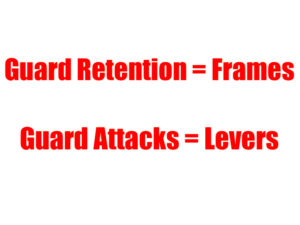
This all come back to our very first principle that Jiu Jitsu is just stick fighting.
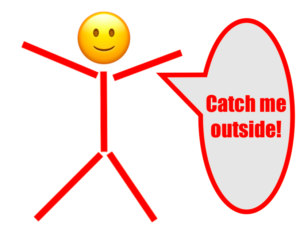
And the human body is just 5 sticks duct taped together.
When you’re attacking, you’re always fighting to turn frames into levers
And when you’re defending, You’re always looking to turn levers back into frames.
Meaning, if you can turn your partner’s arm, leg or neck into a lever; THEN, attack..
If you can’t; then you need to focus on maintaining your frames and focus on Guard Retention.
The Spine As A Lever
Let’s look at the two examples below to see how my partner’s spine can be used as a lever.
In this picture I’m trying to pull my partner, Stephan, down; but, remember what frames are. Frames stop motion. If I can’t move Stephan; then, there’s no lever; and thus, no attack.
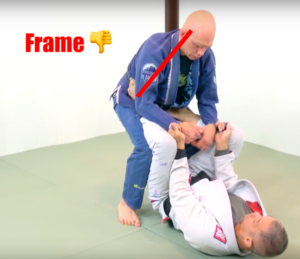
In contrast, if I can move my partner, then I have a lever.
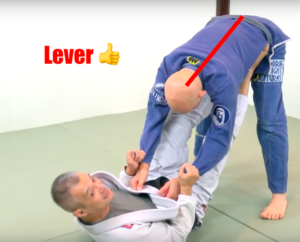
And now, I can attack with a Triangle Choke if I want.
Let’s look at another example.
The image below shows how I’ve pulled my partner’s head down to create a lever out of his spine.
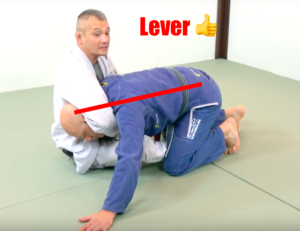
No, I can attack with a sweep and follow up with a Guillotine Choke from Mount.
The Legs As A Lever
Now, let’s look at how you can use your partner’s legs as levers.
In the image below, I have my partner in X-Guard. Even though this is considered by many to be a good position for me, both of my partner’s feet are on the ground and his legs are strong frames.
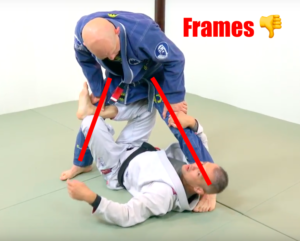
If I stay here without attacking my partner, he’ll eventually pass my Guard. And smash me with his knee.
Guard Attacks are all about trying to win a lever.
In this case, I need to kick with feet so my partner’s foot comes off the ground so the frame that was once his leg, becomes a lever for my control.
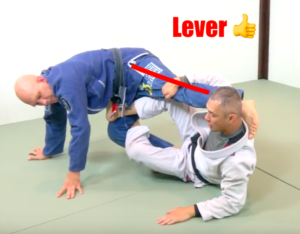
Once I have my partner’s leg as a lever, now I can use that lever to control my partner and sweep him over.
Jiu Jitsu is a constant dance between Guard Retention and Guard Attack. With a greater prioritization placed on Guard Retention.
That should be your winning strategy. To always establish frames and maintain your Guard; and then, opportunistically look for levers to grab onto so you can sweep or submit your partner.
Here’s my latest video that breaks it all down.
Summary Of The BJJ Basics Guard Retention System
So, in conclusion of our BJJ Basics Guard Retention series, we have the entire topic of how to keep your Guard and how to attack from your Guard neatly wrapped up on a single blog article.
Jiu Jitsu is just stick fighting:
- It’s simply turning frames into levers.
- And levers into frames.
There’s 4 types of Guard Passes:
- Over
- Under
- Around
- Through
Guard Retention GUT:
- Hand
- Hands
- Head
If this helped your Guard game even the slightest bit, I would totally appreciate you sharing this article with your friends and training partners 😊
Thanks!

